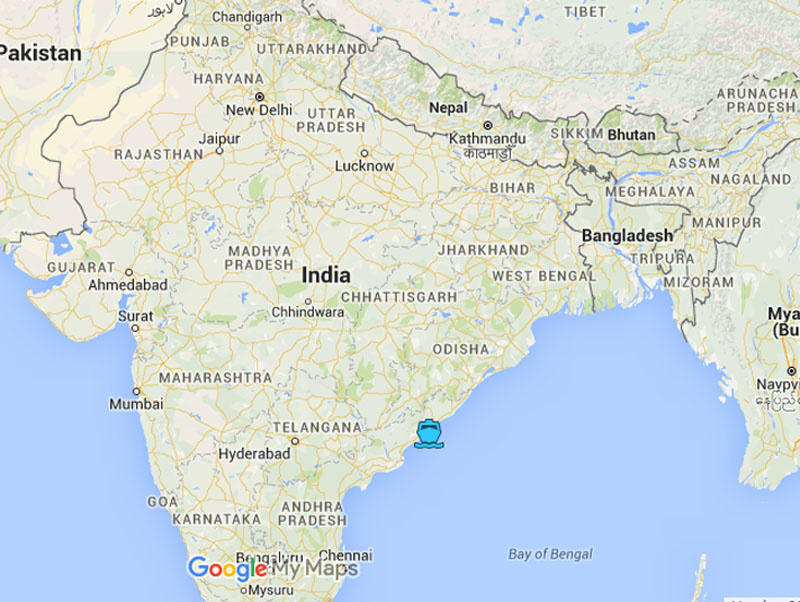Vizag Port: An alternative, strategic gateway
Unforeseen cost higher in conduting third-country trade via Kolkata Port
Kathmandu, April 30
Traders have been urged to utilise Visakhapatnam (Vizag) Port for third-country trade considering ocean freight cost; transparency and efficiency of the port; timeliness and predictable delivery of Nepal-bound cargoes that sufficiently covers slightly higher railway fare from the port to Inland Clearance Depot, Birgunj.
Due to geographical proximity, the rail fare is relatively lower from Kolkata Port. The distance from Kolkata Port to Nepal's only rail-based ICD in Birgunj is just 706 kilometres, against 1,439 kilometres from Visakhapatnam.
However, according to MT Krishna Babu, chairman of Visakhapatnam Port Trust, the rail fare could be halved if Nepal sent back loaded containers via rail to Visakhapatnam for third-country export.
It costs, on an average, INR 76,400 and INR 103,330 to ferry 20-foot and 40-foot containers, respectively, from Kolkata to Birgunj compared to INR 95,000 and INR 145,000 to ferry 20-foot and 40-foot container, respectively, from Visakhapatnam to Birgunj. However, the unforeseen cost is high in Kolkata and there is no predictability in supply of Nepal-bound cargoes and same is applied to export cargoes.
Speaking during the Trade Meet 2018 organised here by the Nepal Intermodal Transport Development Board (NITDB) titled ‘Lowering Cost and Time of Nepal's Foreign Trade and Ensuring Predictable Supply from Visakhapatnam Port', Chairman of Visakhapatnam Port Trust Krishna Babu said that the availability of an alternative gateway for third-country trade could help Nepal in its industrialisation process by ensuring predictable delivery of raw materials.
He underscored that the efficient logistics are critical to raise the competitiveness of industrial production. Comparing the share of logistics cost in production, which is just seven to nine per cent in China and around 18 per cent in India, he said that India still need to do a lot for its export competitiveness, just like Nepal also needs to do.
Sushil Mulchandani, chief operating officer of the Visakha Container Terminal Pvt Ltd (VCPTL) - the terminal management company at Vizag Port - presented an example of how the additional non-transparent charges have been raising the cost of Nepal's foreign trade via Kolkata. It costs $2,100 to import a container of goods from Shanghai to Birgunj via Kolkata, whereas it costs $1,900 for a similar container to be imported from Shanghai to Birgunj via Vizag.
The trade via Visakhapatnam is gradually picking up. Around 12 to 14 rakes have been moving from Visakhapatnam to Birgunj every month since last year after a shipping liner - Maersk Line - started providing service in package through combined bill of lading. In combined bill of lading, the responsibility to deliver Nepal-bound cargoes from the originating port to destination port Birgunj via Visakhapatnam lies with the shipping liner. In Visakhapatnam, L/C documents and import invoices need to be cleared from port customs, which also needs to be forwarded to the bordering customs point, that is Raxaul, to ensure that the cargo containers entered Nepal.
Due to lack of a liaison officer from Nepal government at Vizag Port, the Embassy of Nepal in Delhi needs to forward the L/C documents and import invoices to the port, which is time-consuming, according to port authorities. Maersk Line does not charge any detention and demurrage for containers at transit port and the clock ticks after five days if the trader does not return the container after unloading the cargo at ICD Birgunj.
Krishna Babu underpinned the need of streamlining the documentation process by assigning dedicated staffers of the Nepal Embassy in Visakhapatnam for fast delivery of Nepal-bound cargoes from Visakhapatnam Port. He further said the port has also urged the Ministry of External Affairs India to accept Nepal's request to allow bulk cargo movement from Visakhapatnam Port.
Similarly, Commerce Secretary Chandra Kumar Ghimire said that in the review in Transit Treaty between the two countries as discussed in the recently concluded commerce secretary-level talks, Nepal is seeking to include every possible means that can bring down the logistics costs.
Executive Director of NITDB, Laxman Bahadur Basnet shed light on how timely delivery of Nepal-bound cargoes ultimately slashes costs and also increases export competitiveness.
Shekhar Golchha, senior vice-president of Federation of Nepalese Chambers of Commerce and Industry (FNCCI), said that traders should explore and exploit options where logistics costs of trade are lower.






